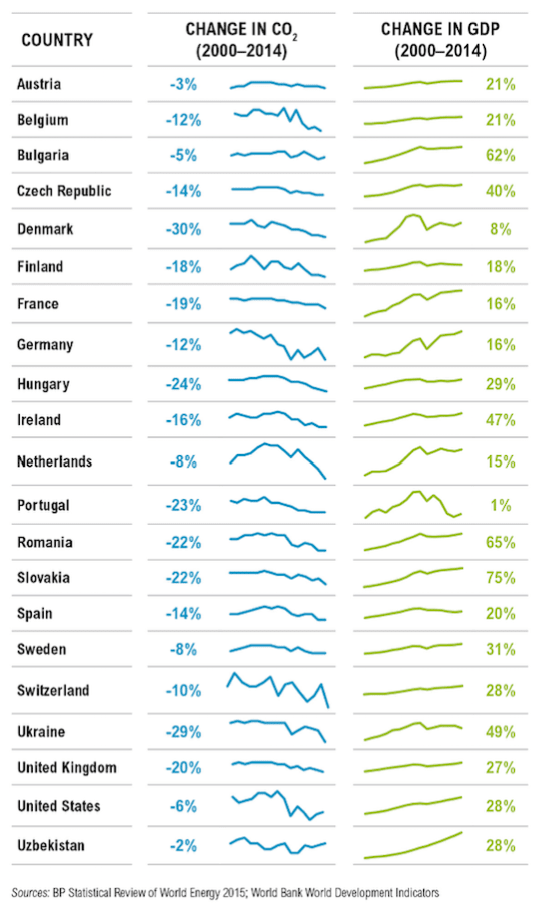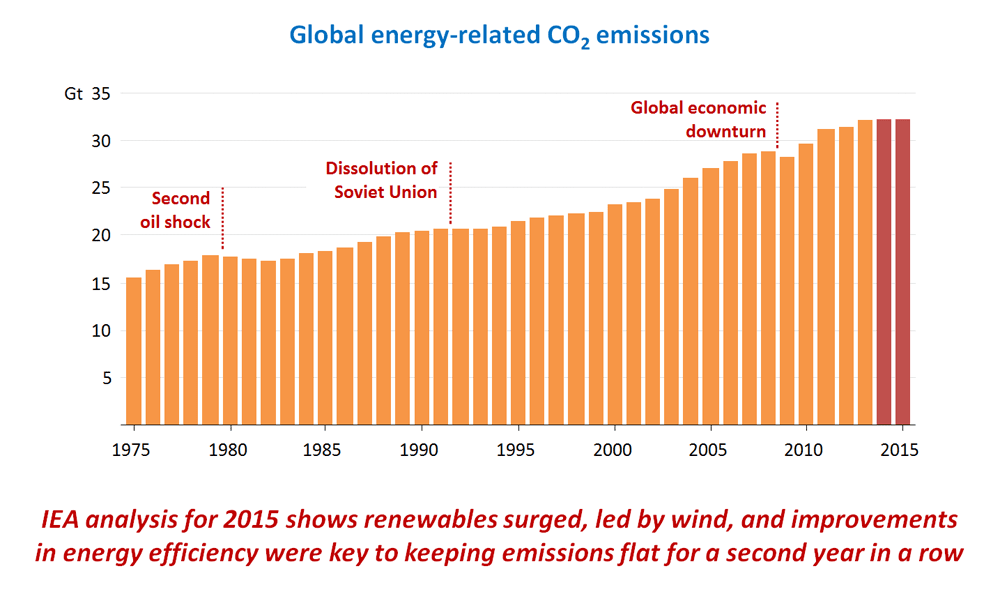|
Just to signpost, some of the key elements of this debate are at: http://www.carbonbrief.org/the-35-countries-cutting-the-link-between-economic-growth-and-emissions and: https://steadystatemanchester.net/2016/04/15/new-evidence-on-decoupling-carbon-emissions-from-gdp-growth-what-does-it-mean/ Much of the debate was triggered by the following infographic from Carbon Brief. The core of the debate is about the accuracy of the data and the extent to which it might suggest causality, or just correlation without causality (instead). Also, more detailed analysis of the data might suggest that there are other factors involved rather than a simplistic, direct link between carbon emissions and the carbon-intensity of production and consumption patterns in the listed countries. For example some offshoring of carbon-emitting production processes would tend to reduce the territorial carbon emissions of the listed countries but increase the carbon emissions of other countries not listed without affecting GDP per se. This offshoring might represent a significant part of the explanation of the headline trends, throwing doubt on the headline suggestion that carbon emissions are decoupling from GDP. To allow for these effects, it would be good to see the global total GDP trends and carbon emission trends, rather than just data on each of these for a few selected countries. There is some global data reported in the Guardian at:
https://www.theguardian.com/environment/2016/apr/14/is-it-possible-to-reduce-co2-emissions-and-grow-the-global-economy and this suggests that one factor is that Chinese energy production from coal has recently been growing less rapidly than in the past, and so there is some hope for a green revolution in China. But it appears to be quite difficult to get a comprehensive picture of all the various factors linking carbon and GDP and the cause-and-effect relationships between all of them. Perhaps, also, longer-term data needs to be collected and analysed before more confidence can be built in any conclusions reached. A starting point for this might be an IEA article at: https://www.iea.org/newsroom/news/2016/march/decoupling-of-global-emissions-and-economic-growth-confirmed.html and, in particular, the following highlights, albeit discussing only the most recent two year period when there appears to have been global GDP growth but without much increase in global carbon emissions: "Global emissions of carbon dioxide stood at 32.1 billion tonnes in 2015, having remained essentially flat since 2013. ... In parallel, the global economy continued to grow by more than 3%, offering further evidence that the link between economic growth and emissions growth is weakening." Of course, a trend over two years is not very conclusive in this complex area, which is why I make the comment above about the need to look at trends over much longer timeframes, perhaps even decades.
0 Comments
Creating a sustainable future for all global citizens is too important a matter to be derailed by political point scoring. It transcends political ideologies. Global Climate Change doesn't care about the political persuations of the people it kills. The challenge is to ensure that the transition to sustainability proceeds without undue political interference. It would help if all political parties would agree on some of the key elements, eg decarbonisation, water and food security and enhancement of Natural Capital. That way, no party could use these matters to try to make their manifestos different from those of other parties and win votes from them.
|
AuthorThe Planetary CFO - working towards a sustainable World Balance Sheet. Categories
All
Archives
July 2024
|


